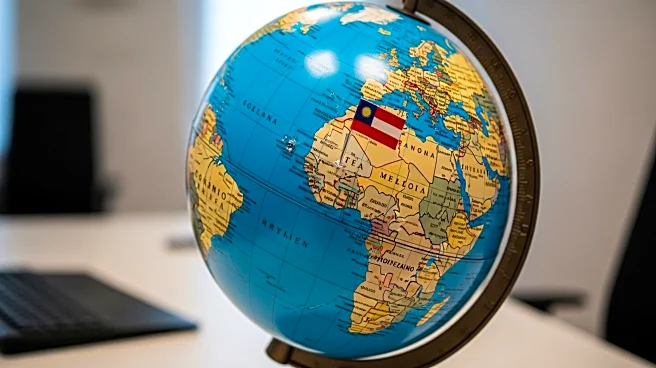What is the story about?
What's Happening?
President Trump's envoys have recently caused diplomatic tensions with several countries, including Denmark and France. Denmark's foreign minister summoned the U.S. diplomat over reports of covert influence operations in Greenland, a Danish territory. France summoned U.S. ambassador Charles Kushner after he criticized President Macron's stance on antisemitism. These incidents reflect Trump's 'America First' foreign policy approach, which often challenges diplomatic norms. The White House has downplayed the significance of these tensions, emphasizing Trump's confidence in his envoys and his foreign policy achievements.
Why It's Important?
The diplomatic tensions highlight the challenges of maintaining international relations amid President Trump's unconventional approach. The incidents risk straining alliances at a time when global cooperation is crucial, particularly in addressing economic and security challenges posed by China. Trump's envoys' actions could undermine U.S. diplomatic efforts and alienate allies, potentially impacting international collaborations and negotiations. The situation underscores the importance of diplomatic tact and the potential consequences of deviating from established norms.
What's Next?
The diplomatic community is closely monitoring the situation, with potential repercussions for U.S. relations with affected countries. As tensions with China escalate, maintaining strong alliances becomes increasingly important for the U.S. The administration may face pressure to address the diplomatic issues and ensure its envoys adhere to more traditional diplomatic practices. Other countries may reconsider their diplomatic strategies in response to the U.S.'s approach, potentially affecting future negotiations and collaborations.
Beyond the Headlines
The incidents raise questions about the role of political appointees in diplomacy and the impact of personal connections on foreign policy. They also highlight the ethical considerations of using diplomatic positions for political purposes. The situation reflects broader trends in U.S. foreign policy under President Trump, including a focus on bilateral relations and a departure from multilateralism.
















